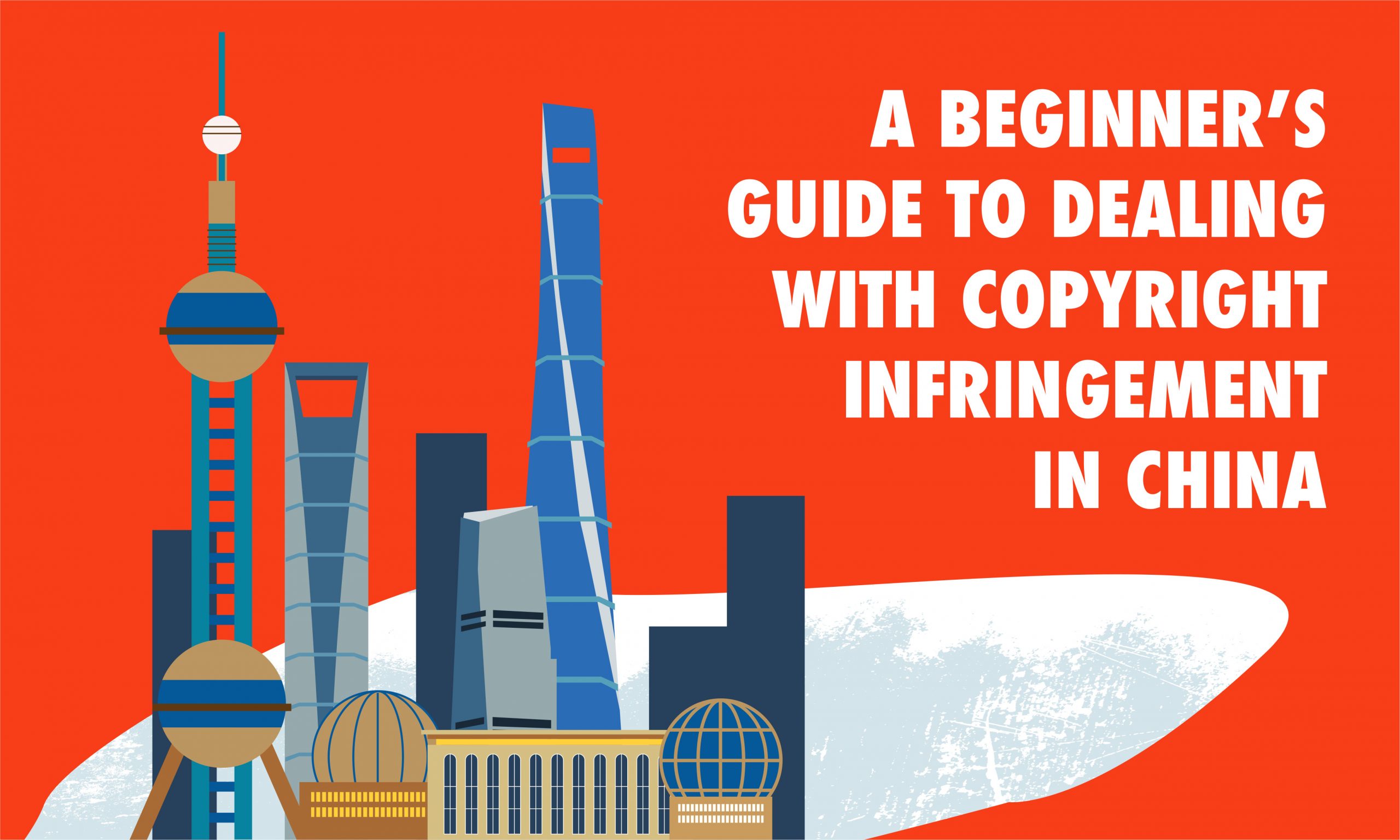
A Beginner’s Guide to Dealing with Copyright Infringement in China
Time to read: 3 minutes
Most foreign merchants looking to enter the Chinese market are believe that one of the most pressing issues they face when it comes to doing business with or in China is international property rights (IPR) violation. And for good reason: even though China has made “visible progress” regarding IP according to a 2017 survey by the European Union Chamber of Commerce in China, 51 percent of firms said enforcement was still inadequate.
But first, what exactly is intellectual property?
According to the World Intellectual Property Organization, intellectual property refers to creations of the mind, such as inventions, literary and artistic works, and design, symbols, names and images used in commerce. Inventors or creators of intellectual property are entitled to earn recognition or financially benefit from their inventions or creations through patents, copyrights and trademarks that are protected by the law.
What are some of the intellectual property risks in China?
Despite China’s best efforts to improve the IP protection in China, including setting up a new national-levels appeal court, there are still many underlying intellectual property risks associated with doing business there.
Being sued
For starters, brands that do not register their IPR in China early on face the risk of copycats abusing those unregistered trademarks, logos, and designs, etc. for a profit. It has happened that many of the original brands have had their products detained by customs when trying to import their products into China via CBEC simply because they failed to register their band before the counterfeit brand did so. In fact, the infringer (the entity that registered the trademark in China) could even sue the original brand and its distributors in those cases.
Being barred from Tmall and JD
Registering on platforms, such as Tmall and JD also require shop owners to present their China IPR registrations before being allowed to o open an online shop, regardless of whether they own the brand or not. In other words, if someone were to register the brand in China before the true owner, this could tremendously complicate the registration process when starting a CBEC business.
Playing catch up with infringers
On other social media channels, such as WeChat and Weibo, the rapid distribution of infringing information is another issue that foreign businesses selling on those platforms have to deal with. Since infringers can easily operate through various smaller platform and marketplaces that do not have strict IPR requirements, it can be very challenging to chase after them.
So, how can you protect protect your intellectual property in China?
The easiest way to avoid any of the above complications is to register your trademark in China as soon as possible. Even if you do not have any plans for conducting business in China in the near future, it pays to start early simply because the application take relatively long (12 months on average). Also, China follows the “first-come, first-served” principle, so whoever applies first will obtain the trademark in China whether they are infringers or not.
How do you register your trademark in China?
For foreigners and foreign companies, trademarks can only be registered through a trademark agent. It generally goes as follows:
- Choosing the relevant product categories under which to register your trademark
- Check for copycats or trademark squatters
- Register the brand name and the company name in Chinese
What can you do if your brand has already been registered by an infringer?
If your you find that an IPR has already been registered by an infringer, then the true brand owner can take legal action again this registration. Depending on the status and the phase of the registration or application and the identity of the infringer, it might be possible to have the registration cancelled. Providing adequate evidence of the being the brand’s true owner through earlier trademark registrations elsewhere could also help.
If you find that counterfeit products of your brand are already being sold on the leading ecommerce platforms, such as Tmall or JD Worldwide, you should turn to the platform’s trademark infringement centers for help. These platform are obliged to investigate the claims, otherwise they may be held liable in the infringement. However, it is quite difficult to prove a violation because in many cases the platform may decide that the product is not similar enough to the original brand owner’s registration.